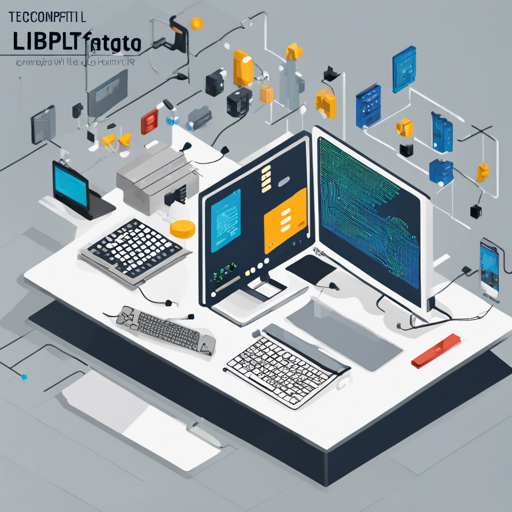Welcome to the world of libplctag, an open-source C library designed for seamless PLC (Programmable Logic Controller) communication. Whether you’re controlling cutting-edge technology in manufacturing, managing vast agricultural systems, or automating your fitness equipment, libplctag makes it all achievable through its powerful features.
What is libplctag?
libplctag is a C library compatible with various operating systems including Linux, Windows, and macOS. Since its inception in 2012, it has gained popularity in industries that require reliable communication with PLCs using either EtherNetIP or Modbus TCP protocols.
Installing libplctag
Ready to dive in? You can download the latest version directly from the releases page! Here’s how to get started:
- Choose Your Platform: Ensure you know whether you need the 32-bit or 64-bit version depending on your OS.
- Download the Code: Head over to the libplctag GitHub repository for the core library at the default “_release_” branch.
- Install Libraries: Refer to the README instructions in the downloaded ZIP file to set up.
Understanding the Features
libplctag is packed with remarkable features that make PLC communication efficient. Think of it as a universal remote control for your technological infrastructure— it works across many different systems!
High-Level Features
- Supports both EtherNetIP and Modbus TCP protocols.
- Open source licensing under the MPL 2.0 or LGPL 2+.
- Cross-platform compatibility (Linux, Windows, macOS).
- Low memory usage ensures high performance.
- Includes extensive example programs for different use cases.
Detailed Features
libplctag offers specific support for various PLC brands, including Rockwell Allen-Bradley and Omron models, making it a versatile choice for many projects.
Example Code
If you are eager to see how it all works, start with the simple.c code from the examples directory. This code snippet demonstrates how to read and write data from a tag named TestBigArray in a PLC, showcasing the library’s ability to manage data with ease.
API Overview
The API provided by libplctag facilitates easy access to various data types (both integers and floating points) and detailed PLC commands. For more in-depth usage, check the full API documentation.
Troubleshooting Tips
As you embark on your journey with libplctag, you may encounter some challenges. Here are some troubleshooting ideas:
- Communication Issues: Ensure that your PLC is properly configured and accessible over the network.
- Compatibility Errors: Verify that you are using the correct version for your operating system (32-bit vs 64-bit).
- Code Support: If you run into bugs, don’t hesitate to file them on the GitHub issue tracker.
For more insights, updates, or to collaborate on AI development projects, stay connected with fxis.ai.
Contributing to libplctag
We welcome your contributions! If you find bugs or suggest features, you can contribute via pull requests directed to the GitHub repository. Your involvement is essential to the ongoing success of this library.
Contact & Support
Need help? Join the discussion in the libplctag Forum or check the issue tracker on GitHub for queries you might have.
Conclusion
Whether you’re new to PLC programming or an experienced developer, libplctag offers a myriad of tools to simplify your processes. At fxis.ai, we believe that such advancements are crucial for the future of AI, as they enable more comprehensive and effective solutions. Our team is continually exploring new methodologies to push the envelope in artificial intelligence, ensuring that our clients benefit from the latest technological innovations.
Now that you’ve read this guide, dive in and start experimenting with libplctag—your PLC communication experience awaits!

